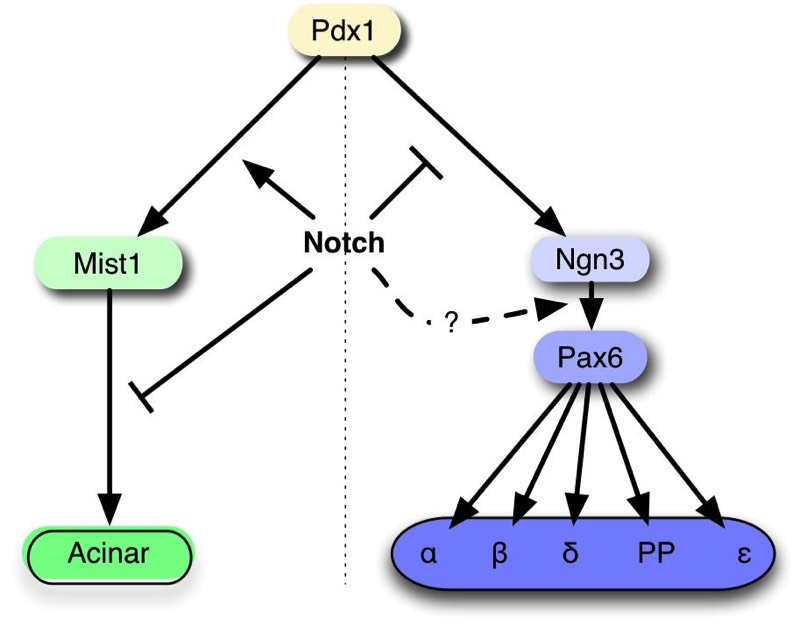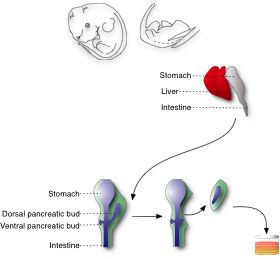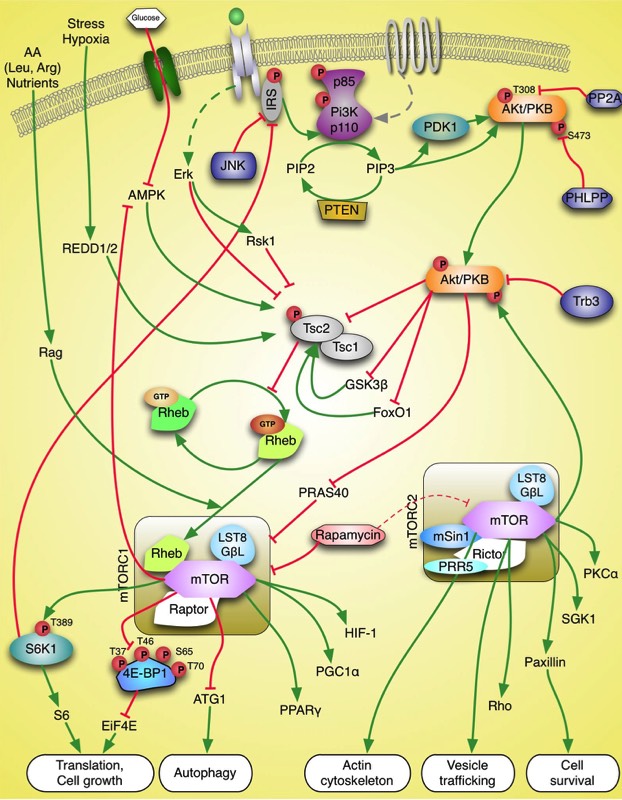

We are interested to find out how β-cells are made, how we can increase their total number or generate new one from new sources. To achieve these goals, our research focusses on three related — yet distinct — axis: Pancreatic development (to understand what regulates the formation of the β-cells and manipulate these processes to increase the β-cell mass), Transdifferentiation (to generate new functional β-cells from other cells during development or in the adult) and Insulin signaling (to understand how this controls the survival and proliferation of preexisting β-cells).
Pancreatic Development and Transdifferentiation

Involvement of the Notch signaling pathway during pancreatic development
Our Lab focusses mostly on the early steps that control the fate of the endocrine progenitors. Using cell and organ culture and complex transgenic models, we work on deciphering the complex regulatory networks that control pancreatic organogenesis
We work on various mouse models of pancreatic development, starting at very early stages of the pancreatic organogenesis.
We also work in adult stages, both under normal conditions, and on various pancreatic regeneration models.

Dissecting and placing the dorsal bud in culture at E12
Pancreatic β-cell biology
Our ultimate goal is to help increase the number of β-cells that can be generated from embryonic or adult progenitors. Our Lab therefore works with various adult mice models where we attempt to manipulate regeneration and compensate from the loss of β-cells in different diabetes models.

The Insulin signaling pathway in the β-cell